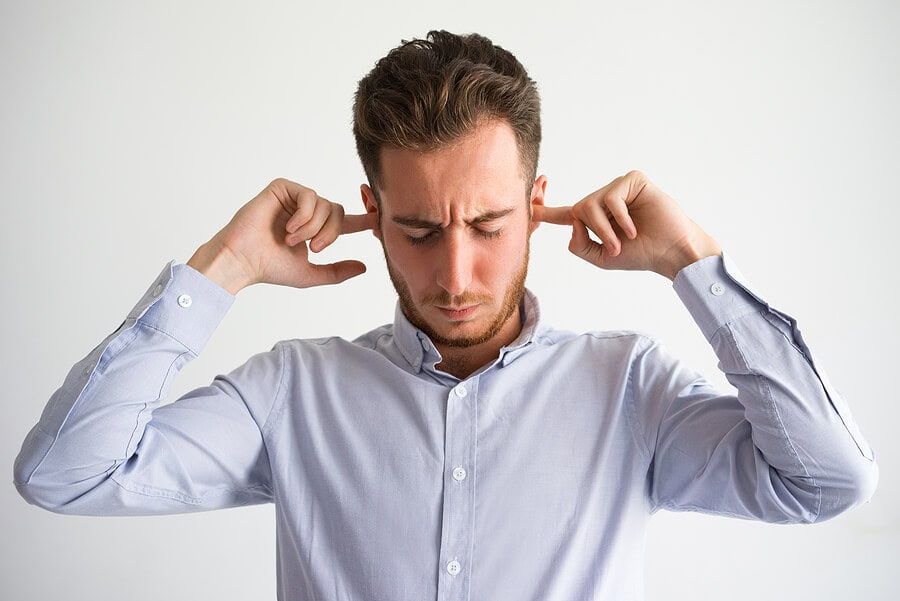Tinnitus is an elusive condition that affects every individual differently. It’s commonly characterized by a persistent ringing or buzzing in the ears. While there is no cure for tinnitus, several treatment strategies can help alleviate symptoms. Let’s take an in-depth look at these options.
Hearing Aids
Do you have hearing loss? Then you may also have tinnitus. Hearing loss and tinnitus often go hand-in-hand, and you’ll need to learn to manage both conditions.
Hearing aids are a great treatment option for both hearing loss and tinnitus. These devices amplify external sounds and can mask the internal sound of tinnitus. Modern hearing aids also often include tinnitus-masking features or programs that emit sounds specifically designed to counteract the tinnitus sound. These therapeutic sounds can divert attention from the tinnitus and provide relief.
Sound Masking Devices
Sound masking is a non-medical option for reducing the loudness of tinnitus. These devices produce a constant, soft background noise, like white noise or nature sounds, which can help to mask the tinnitus perception. Tabletop sound machines are an excellent example, but there are also wearable devices that fit in the ear similar to a hearing aid. The approach works by reducing the contrast between tinnitus noises and ambient sound, making the tinnitus less noticeable.
Tailored Sound Therapy
Developing a tailored sound profile in coordination with a hearing specialist can deliver a more individualized and effective treatment. This form of sound therapy targets the unique frequencies and intensities of your tinnitus. Integrating these custom sounds into daily life, whether through hearing aids or other devices, can help the brain adapt and diminish the tinnitus’s prominence over time.
Cognitive Behavioral Therapy (CBT)
CBT aims to change your reaction to the condition. This form of counseling does not lower the sound itself but instead focuses on improving emotional and behavioral responses. By reframing negative perspectives into more constructive thoughts, you can lessen the distressing impact of tinnitus and engage more fully in everyday life.
Tinnitus Retraining Therapy (TRT)
TRT is a more intensive therapeutic approach that blends counseling and sound therapy. It relies on the concept of habituation, essentially training the brain to categorize tinnitus as a neutral, non-threatening stimulus that fades into the background of conscious attention. Achieving this level of habituation often requires consistent and prolonged therapy, but it holds the potential for lasting relief.
Medication
While no medication exists to cure tinnitus, several can help alleviate the condition’s side effects. Those with tinnitus may struggle with insomnia, anxiety, and even depression. Medications can be prescribed to make coping with tinnitus easier for those severely affected. Always ensure that you use medications under the guidance of your doctor.
Lifestyle Changes
A variety of everyday habits and lifestyle choices can influence tinnitus symptoms. Protective measures like using earmuffs in loud environments can prevent tinnitus from worsening. Stress is known to exacerbate tinnitus, so you can try relaxation techniques such as deep breathing, meditation, or yoga.
Regular exercise can contribute to overall well-being and reduce the perception of tinnitus. Also, certain substances, including caffeine and nicotine, might increase tinnitus severity for some people, so limiting or eliminating these may be beneficial.
Dietary Supplements
Several dietary supplements are purported to relieve tinnitus, including zinc, magnesium, and ginkgo biloba. Their efficacy is largely individual and varies widely, with some patients reporting relief and others noticing no change. Be cautious and consult a healthcare provider before beginning any new supplement.
Experimental and Emerging Treatments
Medical research continues to seek new treatments for tinnitus. These include investigational therapies like neuromodulation, which targets specific neural circuits to lessen tinnitus symptoms. Other research has explored the use of certain drugs to alter the activity of the neurons associated with tinnitus. These treatments are still in the exploratory stages, and individuals interested in these options should consult with specialists and consider participation in clinical trials.
Combining Treatments
It’s not uncommon for the most successful management of tinnitus to involve a combination of the treatments listed above. For instance, you might use hearing aids with a tinnitus management program, attend CBT sessions to manage the condition’s psychological impacts and make lifestyle adjustments to minimize tinnitus aggravators.
Visit Us For Tinnitus Management
With a range of treatment options available, you can find relief from tinnitus. Visit us for a hearing test to learn more about your hearing health and your tinnitus. Together we’ll create a tailored approach to help you manage tinnitus and improve your overall health and well-being.

